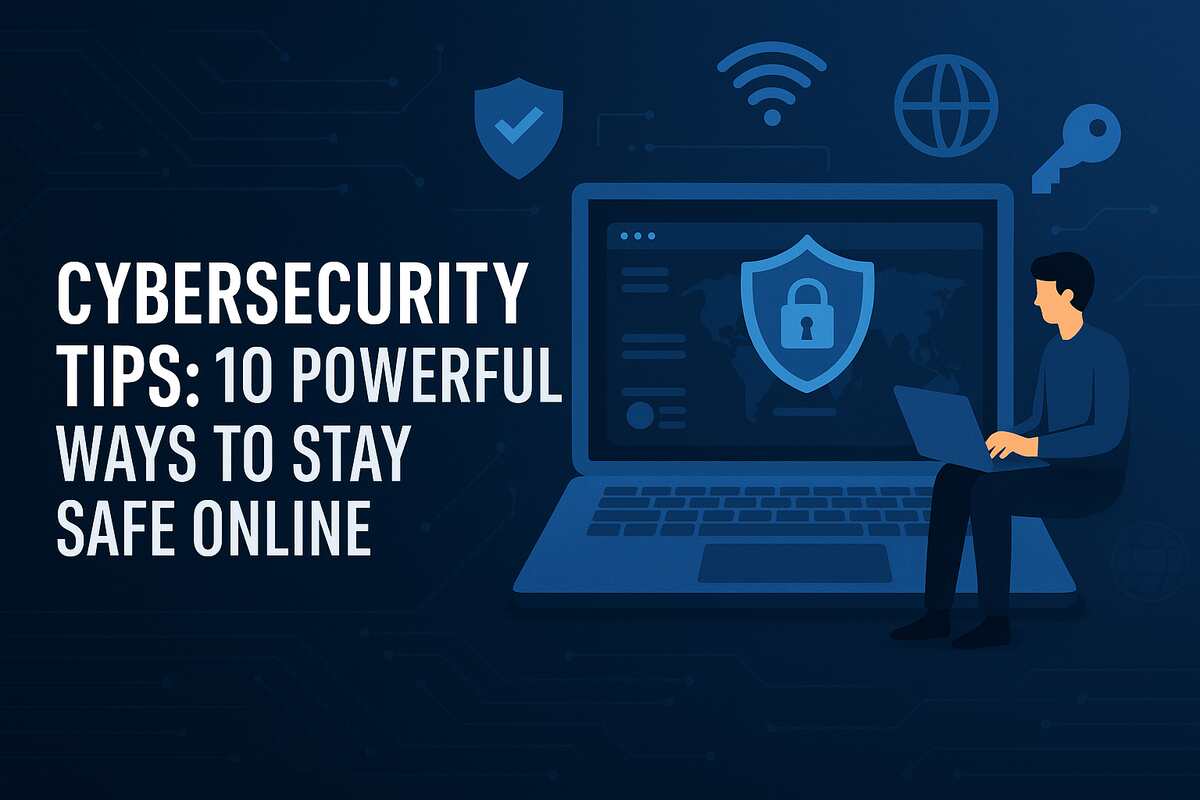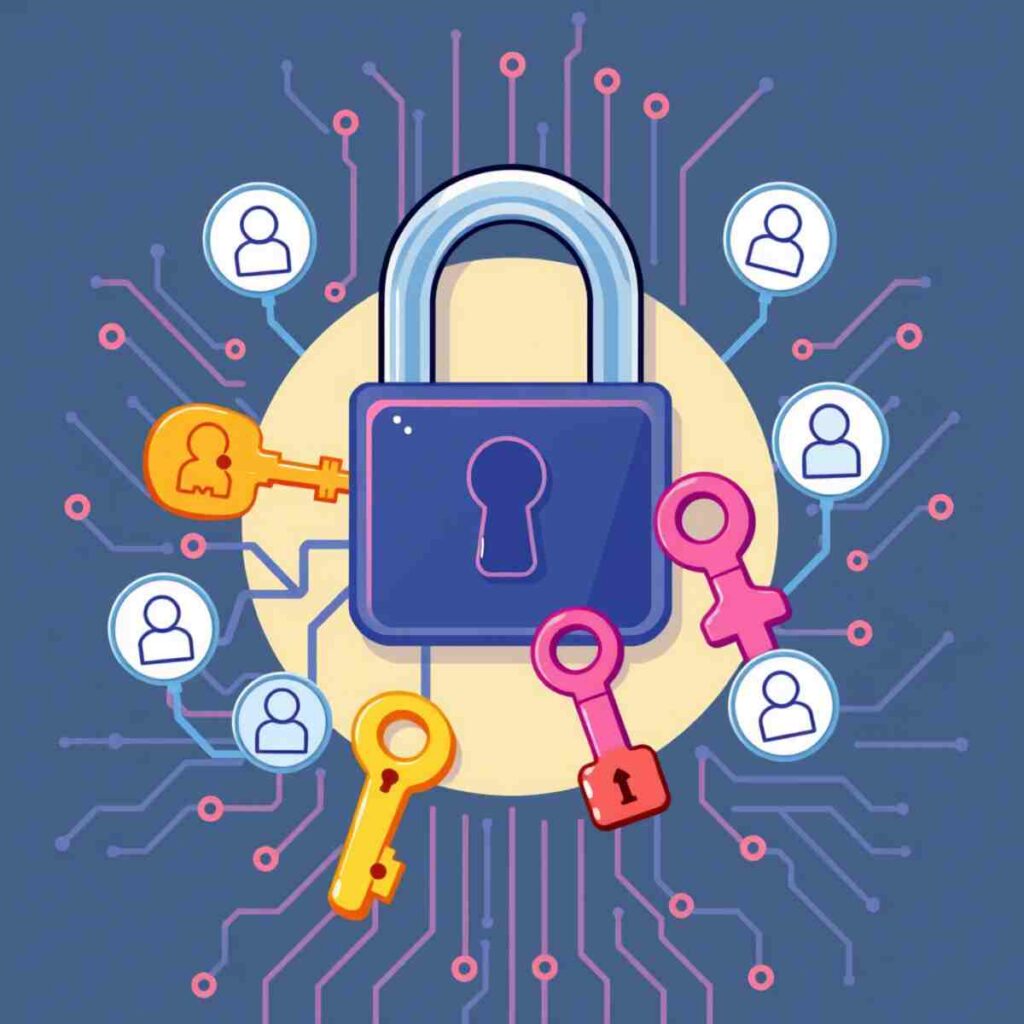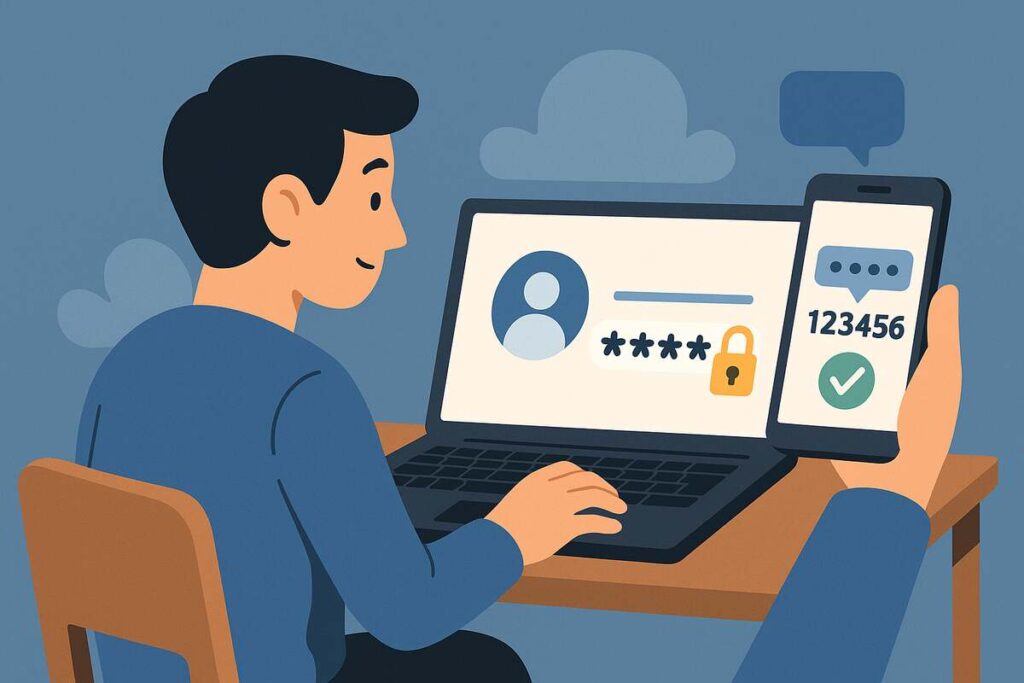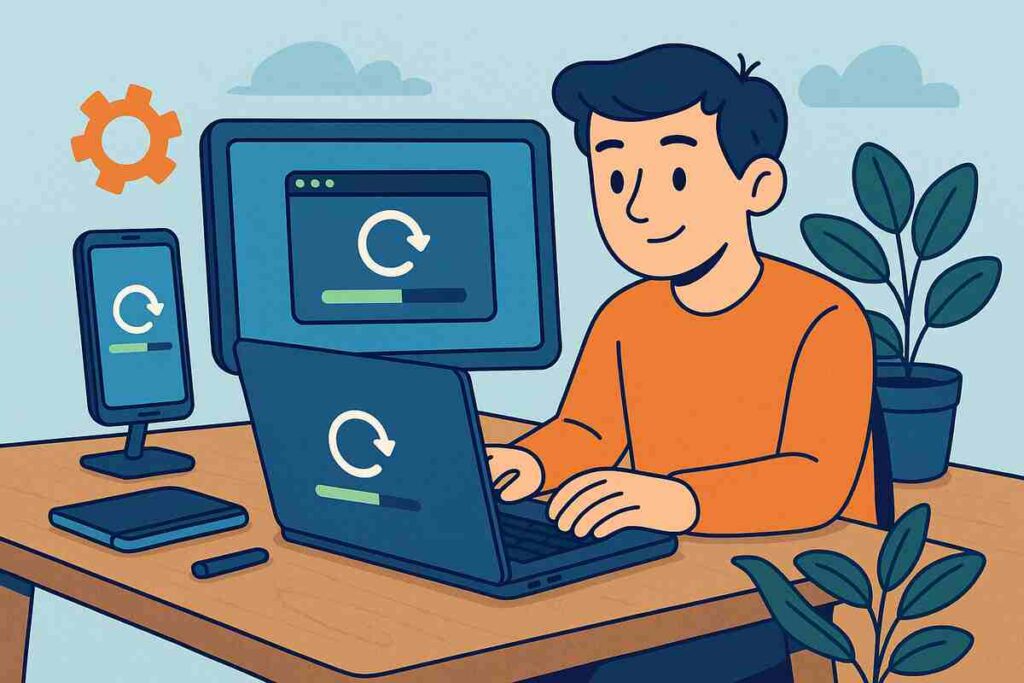Physical Address
304 North Cardinal St.
Dorchester Center, MA 02124
Physical Address
304 North Cardinal St.
Dorchester Center, MA 02124

In a world dominated by digital interaction, data breaches, identity theft, and malware are no longer rare occurrences. From casual browsing to banking transactions, every online activity can expose you to potential threats. Implementing expert-recommended cybersecurity tips is no longer optional—it’s a necessity. Whether you’re a business owner, remote worker, or everyday internet user, understanding how to stay safe online is essential.
Below, we explore ten powerful, actionable cybersecurity tips that significantly reduce your risk and boost your digital defenses in today’s hyperconnected world.

Weak passwords remain one of the easiest entry points for hackers. Reusing the same password across multiple platforms puts all your accounts at risk if one is compromised.
Pro Tip: Use a password manager like 1Password or Bitwarden to store and generate strong passwords.

Even with strong passwords, breaches happen. Two-Factor Authentication adds an extra layer of protection by requiring a second form of verification.

Cybercriminals exploit vulnerabilities in outdated software. Ensuring your operating system, antivirus, browsers, and apps are updated regularly closes security loopholes.
Automate updates where possible to reduce the chance of missing critical patches.
Antivirus software acts as your first line of defense against malware, ransomware, and phishing attacks. Combine it with a firewall to monitor and control incoming and outgoing network traffic.
Public Wi-Fi is often unsecured and a hotbed for cybercriminals looking to intercept data. Avoid logging into sensitive accounts or conducting financial transactions over these networks.
Phishing remains a prevalent and effective method for stealing data. These scams typically involve emails, texts, or fake websites designed to trick users into giving up credentials.
Always verify the source before clicking any link.
Your home Wi-Fi router is the gateway to all your connected devices. If compromised, hackers can access everything from smart TVs to work laptops.
Ransomware attacks can lock you out of your files indefinitely. Regular backups ensure that even if your system is compromised, you won’t lose critical data.
What you share online can be used against you. Personal details posted on social media can be harvested for identity theft, doxing, or password cracking.
Cyber threats are constantly evolving. Staying informed helps you recognize new tactics and adjust your behaviors accordingly.
Start with strong passwords, enable two-factor authentication, and avoid public Wi-Fi without a VPN.
Signs include slow performance, unknown apps installed, frequent pop-ups, and unexpected logins on your accounts.
Some are, like Windows Defender or Avast, but premium services typically offer more comprehensive protection.
Every 3 to 6 months, or immediately after a breach or suspicious activity.
Practicing effective cybersecurity tips is not about paranoia—it’s about preparation. From enabling 2FA to monitoring your digital footprint, these steps act as powerful shields in the battle against cyber threats. As attacks grow more sophisticated, staying one step ahead becomes not only wise but essential. By making cybersecurity a habit, you not only protect your devices but also your identity, privacy, and peace of mind.